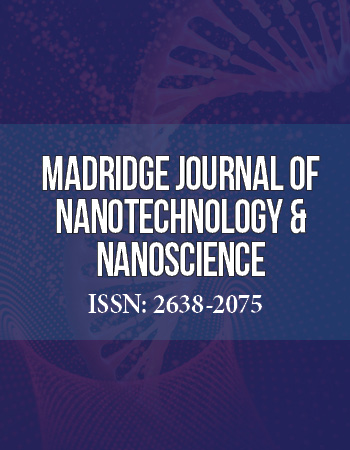International Nanotechnology Conference & Expo
April 04-06, 2016 | Baltimore, USA
Nanotoxicological indices at exposure for Vigna subterranea
1University of Nottingham, UK
2The University of Massachusetts, USA
Effects of silver nanoparticles (Ag NPs) exposure on two geographical cultivars of Vignasubterranea from two African countries were investigated. After inoculation in half strength Hoagland medium amended with 250mg L-1 Ag NPs for 15 days, both physiological and biochemical responses were evaluated. Exposure significantly decreased plant growth by up to 85%. Interestingly, Ag NPs exposure significantly decreased mean shoot biomass in all treatments but increased root mass(34% and 66%) in relation to control. Chlorophyll production was reduced by approximately 46% (in the more tolerant) and 86% (in the more sensitive) for the two cultivars and observed catalase activity was about 50% of the activity in NPs stressed root tissues for the sensitive cultivar. It may be perceived that the inherent stress is associated with observed surge in catalase activity across all cultivars. Also, the observed increase in catalase activity is positively correlated at the 99.9% level (r = 0.9571, n = 10) with decreasingchlorophyll content on exposure. Recorded ascorbate peroxidase activity was higher in leaf tissues. Statistical analysis revealed marked difference between superoxide dismutase activities of V. subterranea cultivars and also between treatments. Time trend of transpiration rate revealed a decreasing trend throughout the growth period.
Keywords: Catalase; Peroxidase; Vigna subterranea; Superoxide dismutase; Silver nanoparticles exposure; Nanotoxicity; Transpiration rate; African crops.
Biography:
Dr. EuchariaOluchiNwaichi is an Environmental Biochemist and currently a visiting academic at the University of Nottingham. Beside her cores, she teaches HSE and Science communication and has worked in diverse industries. Eucharia never waits for a perfect condition to launch her studies geared at finding a sustainable, cheap, environmentally - friendly and safe clean up strategies for remediation of impacted environments, findings which are well consumed. She has received many awards and honors, including the prestigious Commonwealth Fellowship, UNESCO LʼOreal International Fellowships FWIS, among many others. In addition, Eucharia has extensive experience in science outreach in a multi – disciplinary field approach and has worked with host communities and stakeholders to develop a phytoremediation model in a parched environment.


